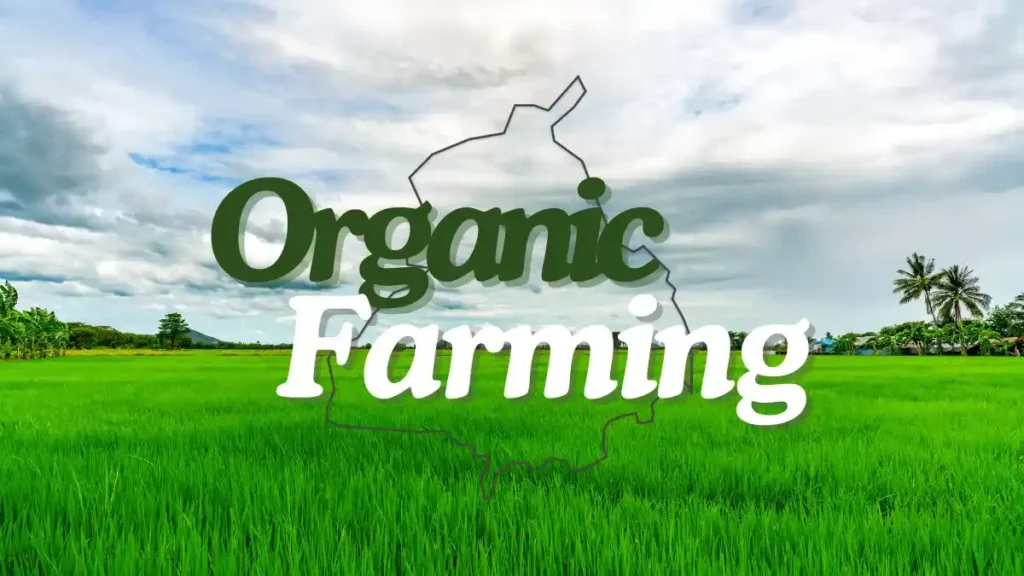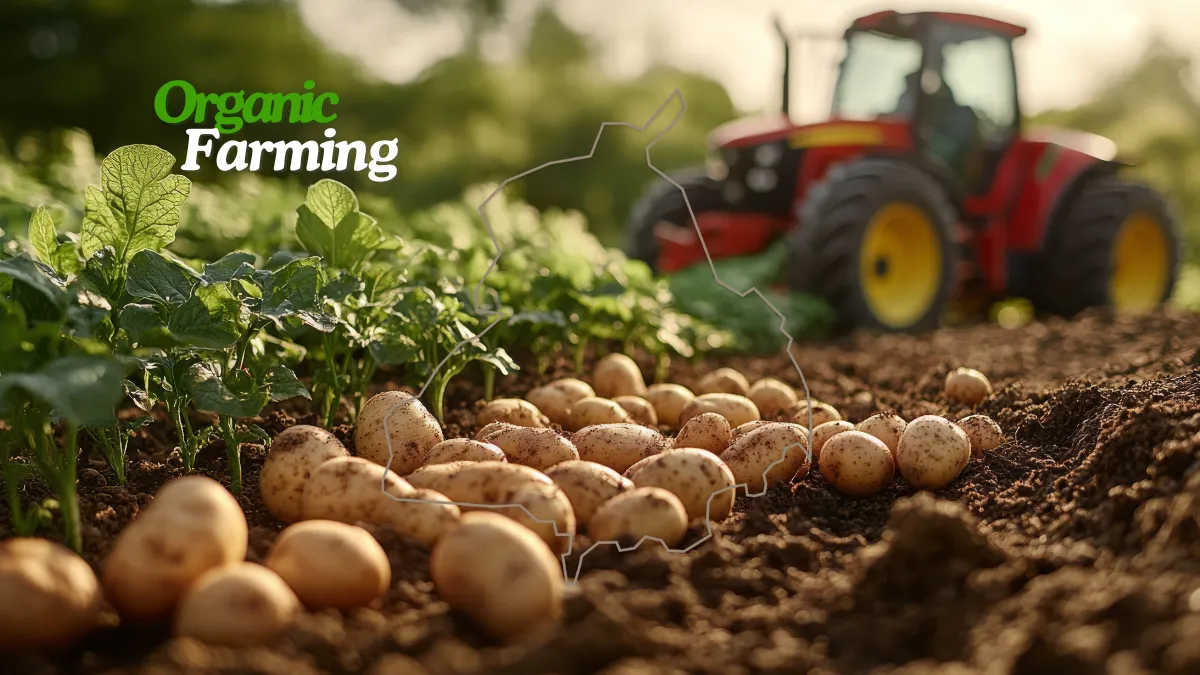Growth of Organic Farming in Punjab: A Sustainable Revolution
Punjab, long revered as India’s agricultural heartland, is witnessing a remarkable transformation with the rapid growth of organic farming. This eco-friendly approach, driven by rising consumer demand and supportive government policies, is reshaping the state’s agricultural landscape. This article explores the factors fueling the organic farming boom in Punjab, its economic and environmental benefits, and the opportunities it presents for farmers and entrepreneurs. As Punjab embraces sustainability, organic farming is paving the way for a greener, more prosperous future.
The Rise of Organic Farming in Punjab
Organic farming, which avoids synthetic fertilizers and pesticides, is gaining traction across Punjab’s fertile plains. In 2023, the state’s organic farmland expanded to over 50,000 hectares, a 20% increase from the previous year, reflecting growing awareness of health and environmental concerns. Consumers, both in India and abroad, are increasingly seeking chemical-free produce, driving demand for organic grains, vegetables, and fruits. This shift is transforming Punjab from a conventional agriculture hub into a leader in sustainable farming practices.
Economic Benefits for Farmers
Organic farming offers significant financial rewards for Punjab farmers, making it an attractive venture. Organic crops, such as wheat, Basmati rice, and Turmeric, fetch premium prices, often 20-30% higher than conventional produce, with initial investments ranging from ₹5 lakh to ₹10 lakh per hectare. For instance, a farmer cultivating organic vegetables can earn annual profits of ₹2 lakh per acre, compared to ₹1 lakh for traditional crops. Moreover, organic farming reduces input costs by relying on natural fertilizers like compost, boosting long-term profitability.
Supportive Government Policies
The Punjab government is playing a pivotal role in promoting organic farming through targeted policies and incentives. The Punjab Organic Farming Policy 2018 provides subsidies for organic certification, training, and bio-fertilizers, easing the transition for farmers. Additionally, the state offers financial assistance of up to ₹50,000 per hectare for adopting organic practices. These initiatives, coupled with awareness campaigns, are encouraging farmers to embrace sustainable methods, contributing to the sector’s rapid growth.

Environmental Impact and Sustainability
Organic farming is not only profitable but also environmentally beneficial, addressing Punjab’s ecological challenges. By avoiding chemical inputs, organic practices reduce soil degradation and water pollution, preserving Punjab’s fertile land for future generations. Furthermore, techniques like crop rotation and vermicomposting enhance soil health, increasing resilience to climate change. The state’s push for organic farming aligns with global sustainability goals, positioning Punjab as a model for eco-friendly agriculture in India.
Also Read: Why Punjab is called Granary of India’s role in Agriculture
Growing Consumer Demand
The surge in organic farming is closely tied to evolving consumer preferences, both domestically and internationally. Urban centers like Chandigarh, Ludhiana, and Amritsar are seeing a rise in demand for organic produce, with sales growing by 15% annually in local markets. Export markets, particularly in Europe and North America, are also driving growth, as Punjab’s organic basmati rice and spices gain global popularity. This demand is creating opportunities for farmers and agribusinesses to tap into lucrative markets.
Role of Technology and Innovation
Technology is accelerating the growth of organic farming in Punjab, making it more efficient and scalable. Farmers are adopting precision agriculture tools, such as soil sensors and drones, to monitor crop health and optimize resources. Additionally, startups are developing organic inputs like bio-pesticides, reducing dependency on external suppliers. The Punjab Agricultural University (PAU) is also spearheading research on organic techniques, providing farmers with data-driven insights to improve yields and profitability.
Also Read: How Punjab Farmers Subsidies Benefits and Government Aid
Challenges in Organic Farming
Despite its growth, organic farming in Punjab faces challenges that require attention. The transition from conventional to organic methods can take three years, during which yields may dip, posing financial risks for small farmers. Moreover, organic certification is costly and complex, deterring some farmers from entering the market. The government is addressing these issues through subsidies and training programs, but greater outreach is needed to ensure widespread adoption across rural areas.
Opportunities for Entrepreneurs
The organic farming boom is creating a wealth of opportunities for entrepreneurs in Punjab. Agribusinesses can invest in food processing units to produce organic snacks, juices, and spices, capitalizing on rising demand. E-commerce platforms are also thriving, with startups selling organic produce directly to consumers online. For instance, a small organic food brand can start with ₹5 lakh and achieve 25% profit margins within two years. These ventures are driving economic growth and creating jobs in Punjab’s rural and urban areas.
Also Read: Punjab RKVY Initiatives: Transforming Agriculture for Growth
Community and Cultural Impact
Organic farming is fostering a sense of community and cultural pride in Punjab, as farmers revive traditional practices like mixed cropping and natural pest control. Local cooperatives are emerging, enabling farmers to share resources and market their produce collectively, strengthening rural economies. Additionally, organic farming aligns with Punjab’s heritage of sustainable living, resonating with younger generations eager to preserve their state’s natural beauty and agricultural legacy.
Future Outlook
The future of organic farming in Punjab is bright, with the sector projected to grow by 25% annually over the next five years. The government aims to convert 1 lakh hectares to organic farmland by 2030, supported by investments in research and infrastructure. Emerging trends, such as organic dairy and medicinal herb cultivation, are expected to further diversify the sector. As Punjab continues to lead in sustainable agriculture, organic farming will remain a cornerstone of its economic and environmental progress.
Also Read: Punjab Literacy Rate 2025: Progress and Challenges
In Conclusion, the growth of organic farming in Punjab is a testament to the state’s commitment to sustainability and economic progress. Fueled by consumer demand, government support, and technological innovation, this sector is transforming agriculture while preserving the environment. For farmers, entrepreneurs, and investors, organic farming offers a pathway to prosperity in one of India’s most fertile regions. As Punjab continues to embrace this green revolution, its organic farming sector will shape a sustainable and thriving future.
FAQs
Q: What is driving the growth of organic farming in Punjab?
A: Rising consumer demand for chemical-free produce and supportive government policies, including subsidies, are fueling the organic farming boom.
Q: How profitable is organic farming in Punjab?
A: Organic crops fetch 20-30% higher prices, with farmers earning up to ₹2 lakh per acre annually, compared to ₹1 lakh for conventional crops.
Q: What challenges do organic farmers face in Punjab?
A: Challenges include the three-year transition period with lower yields and the high cost of organic certification, though subsidies help mitigate these issues.
Q: How is the government supporting organic farming?
A: The Punjab Organic Farming Policy 2018 offers subsidies for certification, training, and bio-fertilizers, encouraging farmers to adopt sustainable practices.
Q: Are there business opportunities in Punjab’s organic sector?
A: Yes, entrepreneurs can invest in food processing, e-commerce, or organic input production, with high profit margins and growing market demand.

